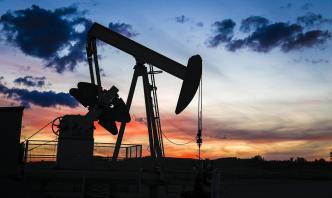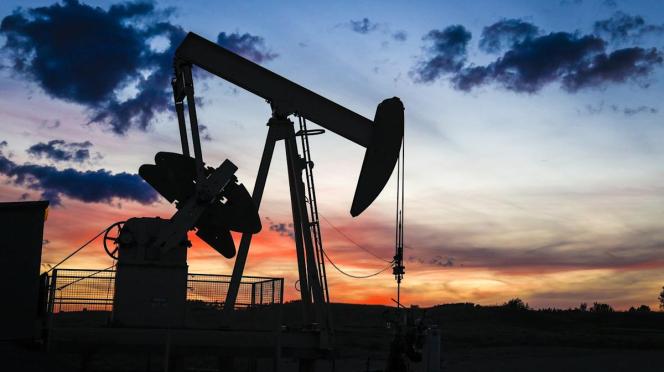Table of Contents Show
When you vote for a Texas Railroad commissioner, what are you voting for?
This election season Texans will, yet again, have an opportunity most people in the U.S. do not have: They will vote on who should regulate the state’s oil and gas industry, one of the biggest fossil fuel industries in the world.
In most states, energy regulators like these are appointed. Not in Texas. The three members of the Texas Railroad Commission are elected statewide, and one of them, Chairman Christi Craddick, is up for reelection.
But what exactly does the Railroad Commission do? And what’s up with that name?
First, the name
In the 1800s, railroads had unparalleled power. They controlled trade by setting the shipping rates charged for commodities. Whole communities lived or died depending on where a railroad company built its tracks and what areas it decided to bypass.
This power angered a lot of people, among them many Texas farmers and ranchers who disliked the railroads’ monopolies on transporting their goods to market.
The farmers demanded regulation, and the Railroad Commission of Texas was established in 1891.
When the commission was formed, it did what its name implies: It regulated railroads.
The commission was initially an appointed board, but the same agricultural interests that got the agency established wanted it to be democratically elected. They thought their voting power could ensure they always had a say in commission policy.
When the Texas oil industry took off in the early 1900s, state lawmakers saw a lot of similarities between the regulation of railroad and of pipelines. After all, they are both fixed pieces of infrastructure used to transport commodities.
That’s how the Railroad Commission started regulating pipelines, too. From there, the commission took over regulating oil and gas operations, as well. It eventually stopped regulating railroads altogether.
Texas produces more oil and gas than most countries; that turned the Railroad Commission into a globally important government office.
What we have today is a state regulator that’s considered one of the most important agencies to oversee energy and – by extension – climate policy in the world, with a totally weird name.
But its leaders are still elected in a popular vote.
That which cannot be renamed
Why not change the name?
“People would ask me about that, of course, even in my time,” former Railroad Commissioner Charles Matthews told KUT in a 2018 interview.
“I said … I’ve done a little study, and everyone who’s ever run for Railroad Commission and says they want to change the name has lost the race,” he said. “So, if I want to win I need not be in favor of that.”
Matthews left the commission in 2005. Since then, it appears some successful politicians have supported a name change. There have also been efforts by state lawmakers to change the name, but that’s still never happened.
A lot of people say the reason a name change has never stuck is that the oil and gas industry opposes it.
“Legislatures tried to change it and the industry just raised Cain,” Matthews said. “They like the fact that a name is so unique. It’s special to Texas. They don’t want to change it.”
Many say one reason the sector opposes a name change is that it strengthens the industry’s hand in efforts to sway the commission.
“If it’s not well known in the rest of the state what exactly [the commission] does … that’s not necessarily a bad thing if you want to influence the commission,” said David Prindle, a professor emeritus at UT who wrote a book called Petroleum, Politics and the Texas Railroad Commission.
Authority well beyond the oilfield
In its current incarnation, the Railroad Commission tracks and regulates oil and gas drilling and production. It’s responsible for making sure oilfield operations are properly shut down when they become inactive. It adjudicates disputes between oilfield operators.
The commission is also supposed to enforce safety rules for pipelines and natural gas distribution systems that run to people’s homes and businesses.
That last part of the job recently received a lot of attention when a natural gas pipeline exploded in the community of Deer Park outside Houston.
Adam Zuvanich
/
Houston Public Media
A natural gas pipeline caught fire in September in the community of Deer Park outside Houston.
Beyond pipeline safety, the commission also helps set natural gas rates. In Austin, for example, the City Council opposed a recent gas rate hike the for-profit gas utility proposed. The Railroad Commission will now decide whether to approve it.
Since so much of the electricity we use in Texas comes from natural gas-fueled power plants, the Railroad Commission is also deeply involved in the functioning of the state’s electric grid. That became a big issue during the 2021 winter storm and blackout, when failures along the natural gas pipeline system resulted in gas shortages to power plants.
Because of the amount of fossil fuels extracted, exported and burned in Texas, the Railroad Commission’s approach to regulation is also extremely important for efforts to curb carbon emissions globally. But, traditionally, it has opposed new laws to do so, often participating in lawsuits against federal environmental rules and protections. Recently, the commission lost a lawsuit to block new methane pollution rules.
The commission’s controversial approval of permits to set fire to natural gas escaping from oilfield infrastructure has caught the attention of people far from the Texas border.
Economy and capture
On top of all these things, there is also the Texas economy to consider when you vote for a Railroad commissioner.
The oil and gas sector’s influence on the state’s financial health and job market is immense, something candidates for Railroad commissioners often remind voters.
“They still view themselves as the managers of the Texas economy and in order to manage the Texas economy they want to help and nurture a healthy petroleum industry,” Prindle said.
But, many say, this tendency to support the oil and gas sector long ago devolved into regulatory capture, that’s when a state oversight agency becomes controlled by the very industry it is meant to regulate.
Some of that goes back to the way commissioners are elected.
When the commission was first created, Prindle said, Texas Gov. James Hogg wanted it to be an appointed agency because he was worried industry could flood Railroad Commission candidates with money “and therefore essentially buy elections.”
With the benefit of hindsight, Prindle said, “We can say … he was right!”
That’s because, under Texas law, commissioners can take campaign contributions from the oil and gas industry. And it’s a lot of money.
“We found that 66% of the commissioners’ campaign contributions came from the same companies they oversee on the commission,” Virginia Palacio, head of the watchdog group Commission Shift, told KUT. “We looked side by side at different decision-making moments, and we found companies giving right before or after a key decision-making moment or while the commission was deciding a contested case that they were involved with.”
Beyond campaign contributions, commissioners also can simply take income from oil and gas holdings, investments and royalty checks, sometimes from the very companies they have state business with.
Commissioners say it’s legal under state law as long as they disclose it.
Palacios thinks the commissioners are breaking the rules by not recusing themselves. But, so far, those rules have not been enforced.
Aspiring commissioners talk a lot about the perceived conflict of interest and corruption among sitting commissioners when they call for reform of the agency.
This year, incumbent RCC Chairman Christi Craddick is running for reelection. The title means she oversees the three-member commission meetings.
Since Railroad Commission races are staggered, fellow commissioners have usually conferred the position of chair to whomever is next running for reelection to help them burnish their credentials on the campaign trail.
Craddick, like every other statewide elected official, is a Republican.
Her challengers include Democratic candidate Katherine Culbert, an oil and gas process safety engineer, Libertarian Hawk Dunlap, an oil well control specialist, and Green Party candidate Eddie Espinoza, a retired school teacher.
Copyright 2024 KUT 90.5










